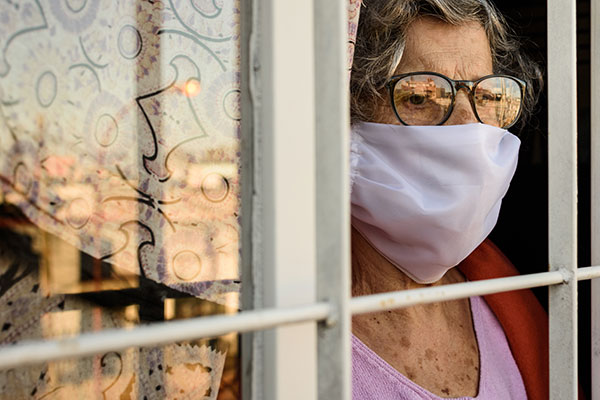Uncertainty can breed fear, particularly when it comes to caring options for a loved one currently in a nursing home during the COVID-19 pandemic. Facing the questions like how long this health crisis will last and will there be secondary, or even more waves of infection, give pause to those with loved ones in these vulnerable nursing home environments. Whether it is your mother, father, or spouse, you are considering moving; there is no right or wrong answer, only choices because all decisions come from a place of love. It is never wrong to try to help those you love to be better protected. Here are some things to consider about changing your loved one’s residence during this pandemic.
The truth is that bringing a cherished family member home is a complicated decision because it is both emotional and fraught with unknown consequences that have real-life ramifications about life and death. If you were to move your spouse or parent home, are you and is your home environment suited to caring for them? If they are on Medicaid, will they allow your loved one to be released and then reinstated in the future? Will there be room in the facility at the time when they need to return? Does your community provide services that can help you provide care? Does the job that you would do at home meet the same level of care as professionals in a nursing home? Will there be a lapse in medications or other necessities during the transition phase?
Before making plans to remove your spouse or parent from a nursing home during the COVID-19 pandemic, the American Association for Retired Persons (AARP) suggests you ask yourself these questions to help you make a sound decision based on your loved one’s wellbeing.
- What are the benefits versus the risks of moving your loved one out of the facility?
- What does your spouse or parent want?
- Can you meet the caregiving needs of your loved one in your home environment? (this includes any specialized medical care, medication management, meals, bathroom and hygiene assistance, and time to engage your loved one in activities)
- In bringing them to your home, are they still at risk of COVID-19 exposure?
- How will you prioritize care if someone in your home becomes infected?
- Can you currently do window or virtual visits with your loved one in the nursing home to decrease the problems associated with social isolation?
- Will the facility readmit your spouse or parent if you change your mind?
- Are there still valid reasons for having your loved one in a long-term care facility?
- Does their current living facility have adequate staff and procedures to handle the issues associated with this pandemic?
- Will your caregiving in the home match that of the professionals in a nursing home?
- Do you have the time to dedicate to your loved one’s proper care?
Answering these questions should reveal whether you are leading with your heart or your head while considering moving your loved one out of their current care facility.
AARP’s position on moving your loved one into your home during the COVID-19 pandemic is in agreement with the experts at the Centers for Disease Control and Prevention (CDC). The CDC reports there is no one size fits all solution to this question, and each family must pursue their decisions based on recommendations from their health care providers and their unique circumstances.
Before discussing the option of moving your parent or spouse out of a nursing home, it is advisable to pose these questions with in-home family members as well as your loved one’s health care providers. In times of uncertainty, it is best to logically think through at home living scenarios both short and long term, as well as review the variety of steps the CDC has put in place for long term care facilities with regards to protecting residents and staff during the COVID-19 pandemic. The caregiving your loved one needs will be the best for them if you take the time to make an informed decision.
If you have questions or would like to discuss your particular situation, please contact our Albuquerque office at (505) 830-0202.

